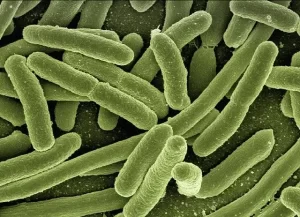Science: Is larger species with longer lifespans?
- Did Cloud Seeding Unleash a Deluge in Dubai?
- Scientists Identify Gut Bacteria and Metabolites that Lower Diabetes Risk
- OpenAI’s Model Matches Doctors in Assessing Eye Conditions
- UK: A Smoke-Free Generation by Banning Sales to Those Born After 2009
- Deadly Mutation: A New Monkeypox Variant Emerges in the DRC
- EPA Announces First-Ever Regulation for “Forever Chemicals” in Drinking Water
Science: Is larger species with longer lifespans?
- Red Yeast Rice Scare Grips Japan: Over 114 Hospitalized and 5 Deaths
- Long COVID Brain Fog: Blood-Brain Barrier Damage and Persistent Inflammation
- FDA has mandated a top-level black box warning for all marketed CAR-T therapies
- Can people with high blood pressure eat peanuts?
- What is the difference between dopamine and dobutamine?
- How long can the patient live after heart stent surgery?
Science: Is larger species with longer lifespans? The rise of epigenetics may reveal the answer
When we talk about the lifespan of animals, we often think of larger species with longer lifespans . For example, the life span of mice is less than 4 years, but bowhead whales can even exceed 200 years. But in canines, this relationship can be reversed: large dogs generally do not live as long as small dogs.
Epigenetics refers to the heritable changes in gene function under the condition that the DNA sequence of the gene has not changed, and finally leads to the change of phenotype. DNA methylation modification is one of the earliest and most in-depth epigenetic regulation mechanisms.
In recent years, it has performed well in finding new drug targets and cancer research. The methylation of the 5th carbon atom on cytosine in CpG dinucleotides is the only form of DNA methylation in mammals. A large number of studies have shown that it has made breakthroughs in the field of mammalian aging and longevity.

Steve Horvath, professor of human genetics and biostatistics at the University of California, Los Angeles, united more than 100 laboratories to sort out and analyze the blood and tissue samples of more than 200 mammals, and 36,000 cytosine methylation conditions, and designed a ” Epigenetic clock “, and based on this “clock” can estimate the age of any living mammal.
As early as 2018, Professor Steve Horvath proposed the ” Epigenetic Clock Theory ” and published it in Nature Reviews Genetics , titled: DNA methylation-based biomarkers and the epigenetic clock theory of ageing .


At the 2021 American Society of Human Genetics Annual Meeting ( ASHG 2021 ) online meeting, the team reported on the use of cytosine methylation to build an evolutionary tree and the emergence of some new genes that may control aging in the “epigenetic clock”. They found that 55 methylated cytosine clusters are associated with species-specific characteristics such as lifespan, average adult weight, and age at sexual maturity, and proposed that genes close to methylated bases may be turned on or off to help control these characteristics.
Based on the study of DNA methylation, there is a known contradiction: For most mammals, the longer-lived ones tend to be larger, while for dogs, the longer-lived ones are smaller. The latest research found that, The lifespan-related clusters also include genes that control the distribution of fat molecules , that is, the blood of large dogs contains relatively high levels of fat molecules, which leads to increasing damage to neurons during aging.
But this study did not shock all epigenetics researchers, because similar “systematic epigenetic trees” were also constructed for the study of plants ten years ago, but undoubtedly, these are comparative epigenomics. Research has provided a lot of resources, and a series of new ideas and methods based on this will be born and expanded, becoming the key to open the door to a new world in the field of epigenetic research.
Reference:
https://www.nature.com/articles/s41576-018-0004-3
https://www.science.org/content/article/chemical-switches-genes-may-help-explain-why-large-mammals-live-longer
Science: Is larger species with longer lifespans?
(source:internet, reference only)
Disclaimer of medicaltrend.org
Important Note: The information provided is for informational purposes only and should not be considered as medical advice.



